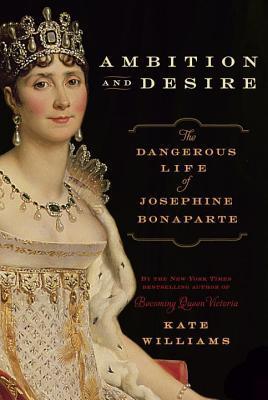What do you think?
Rate this book


384 pages, Hardcover
First published January 1, 2013

 come to my blog!
come to my blog!
Josephine lived an incredible life, rising from a humble childhood in Martinique to great power and glory. She experienced the highs and lows of rule and the pains of exile. Her tastes set the trends for art, fashion, gardening, and decoration, and her manner as a consort became seen as the ideal ...
Most of all, Napoleon and Josephine's romance is celebrated as one for the ages, a coup de foudre both mysterious and passioante. Although they were married only fourteen years, they shaped each other's legacies, and theirs is one of the great love stories of history. Napoleon needed Josephine to spin him from general to politican, to smooth his way, to charm his opposition. She threw in her lot with him, gambling that he would lift himself beyond mere military glory. She won her bet, and yet it came at a price. Marriage to him was exhausting, and she had to pretend she was someone she was not for much of her life.

